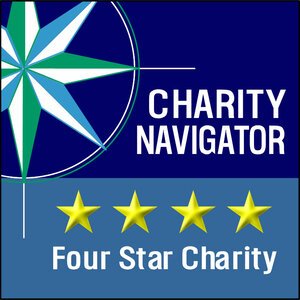August 2022
The poets are taking us on a trip down memory lane. As they relive their first experiences at the Cowboy Poetry Gathering (now the National Cowboy Poetry Gathering), they also reflect on what the Gathering means to them and to cowboy poetry…and, of course, invoke characters and friends wrapped up in Gatherings past. Many life’s trails converged at the Gathering, and this month’s question stirs up just a few of those happy moments.
Can you tell us a story about your first time at the Cowboy Poetry Gathering in Elko?
–Thanks, Curious Cadie
Yvonne Hollenbeck:
Cadie,
My first time at the Cowboy Poetry Gathering (as a performer) in Elko was in 2001. I was so excited to be invited, and so nervous. I felt like a duck out of water. I was on two ticketed performances, which was quite stressful for a first-time performer. The show on Friday afternoon was in the auditorium and it was sold out, mainly because Red Steagall was a headliner on that show. My friend, Lynn Messersmith of Nebraska, was the other performer, and she and I were basically unknown. Red was to fly to Elko from Washington D.C. where he was attending President George W. Bush's inauguration. Unfortunately, Red became very ill while there and was flown to Dallas for emergency surgery just before he was to come to Elko. The emcee welcomed the full house, took care of housekeeping announcements, and then announced, "We are sorry, but Red Steagall is unable to be on the show this afternoon." The whole crowd, in unison, went "OHHHHHhhh." You guessed it, Lynn and I had to carry the show, but the audience was very cordial and I don't think anyone left.
I must have done all right, as walking down the hallway later that afternoon, my husband and I met Baxter Black, who introduced himself (as if he needed to), and asked, "Is this the famous Evon?" Then proceeded to tell me that his mother-in-law, Phyllis Logsdon, had been in my show and told him that I was now her favorite poet. I don't know if I really was her favorite, but we became pen pals and friends.
Another memory from that first year for me was of being on a night show at the Western Folklife Center. I ended my set with "The Christmas Quilt," and received a standing ovation. Charlie Seemann, the Executive Director, told me the next day that it is rare for any poet to get a S.O., but he thought I was possibly the first female to garner one. So, as you might imagine, I had a very memorable "first" gathering (for me) at Elko, and more importantly, I made a lot of wonderful friends. What a gathering!!!
Dick Gibford:
Dear Curious Cadie,
It was January 1985 and I had my old 1965 International pickup that I had bought from Dennis Jayo headed for the Nevada border. I had been buckarooing for Zane Block who owned an outfit in southern Idaho. I had recently spent a pleasant summer at Juniper Station, a high mountain cow camp where I helped Dennis Jayo run Zane’s cattle on the forest lease up there. That winter I had moved down to the Snake River country near Oreana, Idaho where I took on a few broncos to break and train. Anyway, got to Elko and met up with Bill Simpson, Bob Schild, Owen Barton, and Waddie. All of us were mostly riding for a living fulltime back then. It went very well, considering no one knew quite what to expect as this was the first-ever cowboy poetry gathering in the history of the world! There were 400 or 500 people that came to watch and enjoy! I remember one night about 500 of us all went to listen to Baxter Black tell his hilarious, insightful, and witty poems. It took off like wildfire from this first gathering, eventually spreading all across the globe, and as they say, the rest is history!!
Waddie Mitchell:
Wow, you're making us reach way back on this one. Actually, a big part of my memories of the first CPG is running around getting the Convention Center to allow us more room, more chairs, more trash can emptying, more trash can bags, more toilet paper, etc. Then, we needed to find more sound equipment, more people who knew how to run that equipment. It was all getting pretty overwhelming to me, but luckily we had at the helm Mr. Calm and Collected, Hal Cannon. He'd had experience with festivals, concerts, and conventions and he was able to keep us (his crew) somewhat sane. Past all that, though, we were meeting cowgirls, cowboys, ranchers, poets, folk singers, songwriters, historians, educators and, very importantly, a press interested in this oxymoron-sounding event happening in the middle of nowhere, in the middle of the winter. I hadn't been in such a varied bunch of people since I was drafted into the army, although this one was for fun stuff. I can't talk for anyone else, but I was not aware of what was going on, what Hal had unleashed upon the world. I had no idea of how it would change my life. How this art form would become so important to so many lives.
DW Groethe:
Honestly, there isn't one particular thing that stands out for me. My first year was 2003 and since I've kept the programs of every “Elko” I've been invited to, I just went to my program and perused the sessions. I have to do this more often, as it dawned on me that a goodly number of folks that I consider old friends are folks I met that January. And not just the poets and musicians, but the Western Folklife Center staff and the folklorists and the volunteers and, number one in my book, all the folks who come to see us every year and make a point of saying "hi." That first year in Elko was, without a doubt, one of the highlights of my life and will always remain so. There's more than a few in that program that have crossed the divide and are sorely missed, but there's still a whole passel of them that are hanging in and some of them are going to be there in January '23. I can't wait to see everybody again. It's going to be a wonderful time. Ta daa.
See you in Elko,
dw
Bill Lowman:
Yes, good question. I am one of the few fortunate first-year poets of 1985. It was a magical time. For all of us coming into Elko from the east, we all gathered at the Utah Arts Center in Salt Lake City, right beside the Utah "Jazz," N.B.A. Basketball stadium, for a get acquainted social, then we all "hoofed" it down to the famous old Union Pacific Train depot with its huge murals high on the walls, where we boarded out for Elko at midnight. They had privately chartered the two tailend passenger and lounge cars for us. I met poets and singers from all over the midwest and south to Texas. R.W. Hampton strummed his guitar and sang us cowboy songs as we mingled and visited all the way. As we rolled into Elko at 4 a.m., Hal Cannon shook our hands as we stepped off.
The Stockmen's Casino was our "unofficial" headquarters long before George Gund presented us with the old Pioneer Hotel that is our center now. The big empty banquet room on the second floor quickly became our "after hours" hangout as numerous small groups of professionals shouldered up to rawback country amateurs jamming, side by side every night until the break of day. We'd hit the sack for a couple hours, grab a bite, then head out to the Civic Center for the day. The closing night it was "law" to stay up all night before boarding for Salt Lake City.
The national news media was convened by freelance correspondence long before the T.V. and electronic media came. A lot of us were quite nervous getting up in front of a crowd. I had the great luxury of sharing the stage with Glenn Ohrlin. Those were special times. How could you have it any better? A person could feed off his calm.
Virginia Bennett:
My very first Cowboy Poetry Gathering in Elko, Nevada, was in 1990. So many things were different back then, when “the Gathering” was just five years old. Poets and singers were selected to represent the state where they lived and I had been chosen to help represent the state of Colorado, where I was living on a ranch managed by my husband, Pete. Our son, Jesse, was ten years old and he came with us as we drove the almost 600 miles from our ranch south of Silt (in western Colorado) to Elko in one day, arriving late at night. Like everyone else attending their first Gathering, we didn’t have a clue as to how things worked or where to go but, again like everyone else, we figured it out. I was scheduled to recite my poems in one or two sessions per day and I enjoyed every bit of it to the hilt. I remain friends today with several of the ranch folks I met that year, like Katie and Terri McCall, the 13-year-old twins from a ranch out in the hinterlands of eastern Nevada. For several years after that meeting, Katie and I became fond penpals, a memory I especially treasure. Over the years, I got to know her mom, Deanna Dickinson McCall, and her dad, David McCall, and her brother, Rusty. Rusty rode on ahead of us, up the trail to the Lord’s verdant pastures several years ago (and much too soon) and we all look forward to joining him one day. These days, I still nurture my connection with this ranch family and can’t help but marvel that those 13-year-old girls today are grandmothers.
Jack Walther from Lamoille, Nevada, sat down front at one of the daytime theme sessions in which I was slated to recite my original poetry. I have lost a lot of my ability to remember things that I hear or see contemporaneously these days, but I have memories well-stored and oft-visited from years past, including my 14 invitations to Elko as a Gathering participant. And I can recall clearly my first introduction to the wonderfully humorous cowboy who was Jack Walther. Nervously, I approached the podium. I had my presentation all memorized and carefully planned out, one which included a cowboy joke to get it all going. I cleared my throat and nervously began by setting up the obscure one-liner.
“I see there are a lot of ranch folks and cowboy families in this audience, so I thought I might test your knowledge of western history. Does anyone here know why Chief Sitting Bull had his warriors ride Appaloosas into the Battle of the Little Bighorn?”
Before I could state the punch line, Jack answered my rhetorical question in a tone loud enough for most of the audience to hear.
“He didn’t want to kill a good horse,” was the retort he provided in his iconic, gravel-filled voice. The room exploded in laughter and that included myself. I was not a seasoned performer and there I was, at the podium, trying to get my nerves under control by telling a simple joke and the moment was wrenched from my control by this delightful cowboy in the first row!
After the laughter died down, I instinctively rolled with the flow, saying, “Well, thank you, sir, for providing a better punchline than the one I stole from the Western Livestock Journal! I was just going to say, “Sitting Bull wanted his warriors to be darn good and mad when they got there.”
The folks in those familiar, metal folding chairs were kind and besides, they went there hoping to laugh anyway, so they all gave a healthy chuckle at my punchline too. Thus, in the end, it worked out better than planned: they got two reasons to laugh and I met a treasure of a man with whom I would become close friends until he passed away 26 years later in 2016 at the age of 97.
(And just for the record, I have enjoyed owning and riding several Appaloosas in my lifetime and respect them for the various qualities they carry in their spotted, snowflaked, and leopard-laden genes! I wish I had any one of them back right now.)
The memories I have from that first Gathering would fill a good-sized book, I’m sure. Each of them put a smile on my face back then, and now, as I write this. I will close with one more. I was blessed to have been in the lineup for a handful of small shows around Colorado over the couple of years prior to receiving that first invitation to the Gathering in Elko. I had met many cowboy performers whom I admired almost as much as any teenager idolized The Beatles back in the day. Gary McMahan, Tom Hayden, Liz Masterson and Sean Blackburn, and Vess Quinlan come easily to my mind. During that 1990 Elko Gathering, it was icy cold and spitting snow for most of the three to four days that we were in attendance. One day, at the Convention Center, someone chanced to tell me about the cowboy singers doing their thing down the street at the old Elko City police station, known affectionately by performers and audience members alike as The Cop Shop. I finished the last of my “theme sessions” one day and hoofed it on down to the police station, not quite sure of what to expect. As I entered the front door, I softly knocked some of the snow off my leather boots while my retinas opened back up due to my entry into the darkened hall from the bright, snowy day outside. At the same time, the “auto grey” lenses in my fogged-up glasses took their sweet time lightening my vision until, eventually, I could make out the well-used, small basketball court with the high stage at the far end, such as can be seen everywhere throughout the U.S. in granges, town halls, and schools. Even before I could see clearly, I easily recognized the voices onstage and the song they were singing: Sean Blackburn’s jazzy tune, “Jingle in My Jeans.” I suddenly felt right at home, for, a year earlier, Liz had given me their latest cassette titled, Tune Wranglin’, which is still one of my favorite cowboy music albums. I stood at the back of the crowd and enjoyed watching my friends as they harmonized and yodeled and Sean flashed his smile through his thick, black moustache while Liz swayed her hips in time to the strums coming from the guitar she played. To me and everyone else enjoying the show, Liz was a bright star, beautiful in every way, an expert foil to her partner’s keen-witted jokes. Sean was a handsome fella and both of them were oh, so talented! I raptly watched the audience as they listened to these polished performers who had practiced their timing and delivery to a level much like fine art, gleaned from their many years traveling the US and presenting their tributes to the singing cowboys and cowgals of the West.
When the song was over, I was shocked from my reverie by Liz’s voice coming clearly over the microphone. “Well, look who’s here! There in the back is the best cowgirl poet around, Virginia Bennett! Come on in and join us, Miz Virginia!”
For those who did not know her, this was classic Liz Masterson. She was so gracious and generous with up-and-coming poets and singers. She aptly mentored me during the many hours we visited on the phone, me sitting on the kitchen counter in our employee housing on the ranch. She freely offered to me her wisdom and well-earned advice, such as how to deal with presenters who might suddenly call, wanting to hire me for a program. What to ask and how to answer, the complete business side of performing and, also, tips for stage presence and so many other things that had been foreign to me. I loved her forever for it. I was in no way the “best cowgirl poet around” when Liz called the audience’s attention to me standing at the back of the crowd in The Cop Shop. But Liz always made me feel that way and she told me backstage later, when I admitted that I had been a little embarrassed by her announcement, “Those folks don’t know that but now they’ll always see you that way.”
How could I not love that warm, kind-hearted gal? Sean passed away from a sudden heart attack several years ago and not too many years after that, we lost Liz to cancer.
These recollections remind me of what the now-National Cowboy Poetry Gathering is really all about. It’s the people, both ranch folks and urban dwellers. It’s the folks we meet there who quickly become family and profound friends in relationships that last right up until one part of the friendship passes away. Friendships that are enduring, where we see kids grow up and marry and have kids and grandkids of their own. It’s connections that are real and deep. We watch as those we have met ride down life’s trails and we become involved in their lives in authentic ways.
I guess the one word to wrap it all up might sound cliché, but LOVE is what it is and what it remains. Love of the land and the lifestyle, definitely. And love and respect for each other from every aspect of the event: audience, WFC staff, fellow poets and singers/players, the volunteers who drive the vans or help backstage, the folklorists, the photographers and news folks. I’m pretty sure it’s exactly what the founders of the Gathering hoped it would be…and more.









